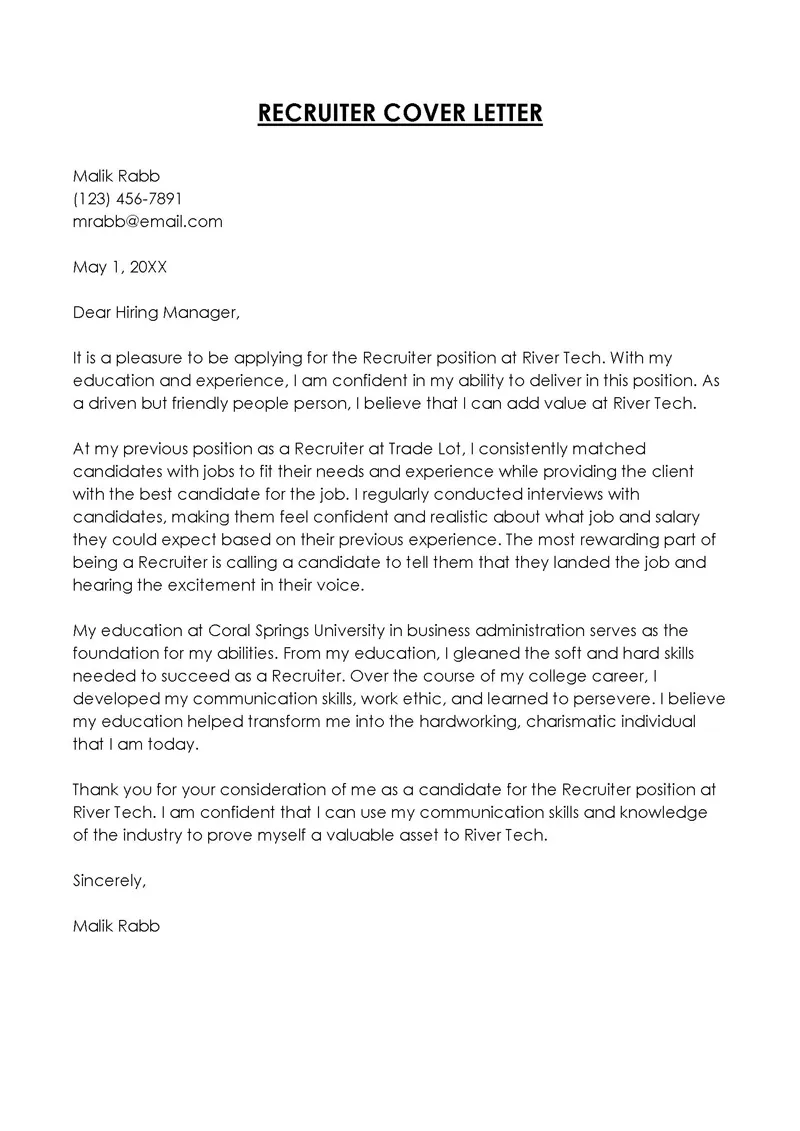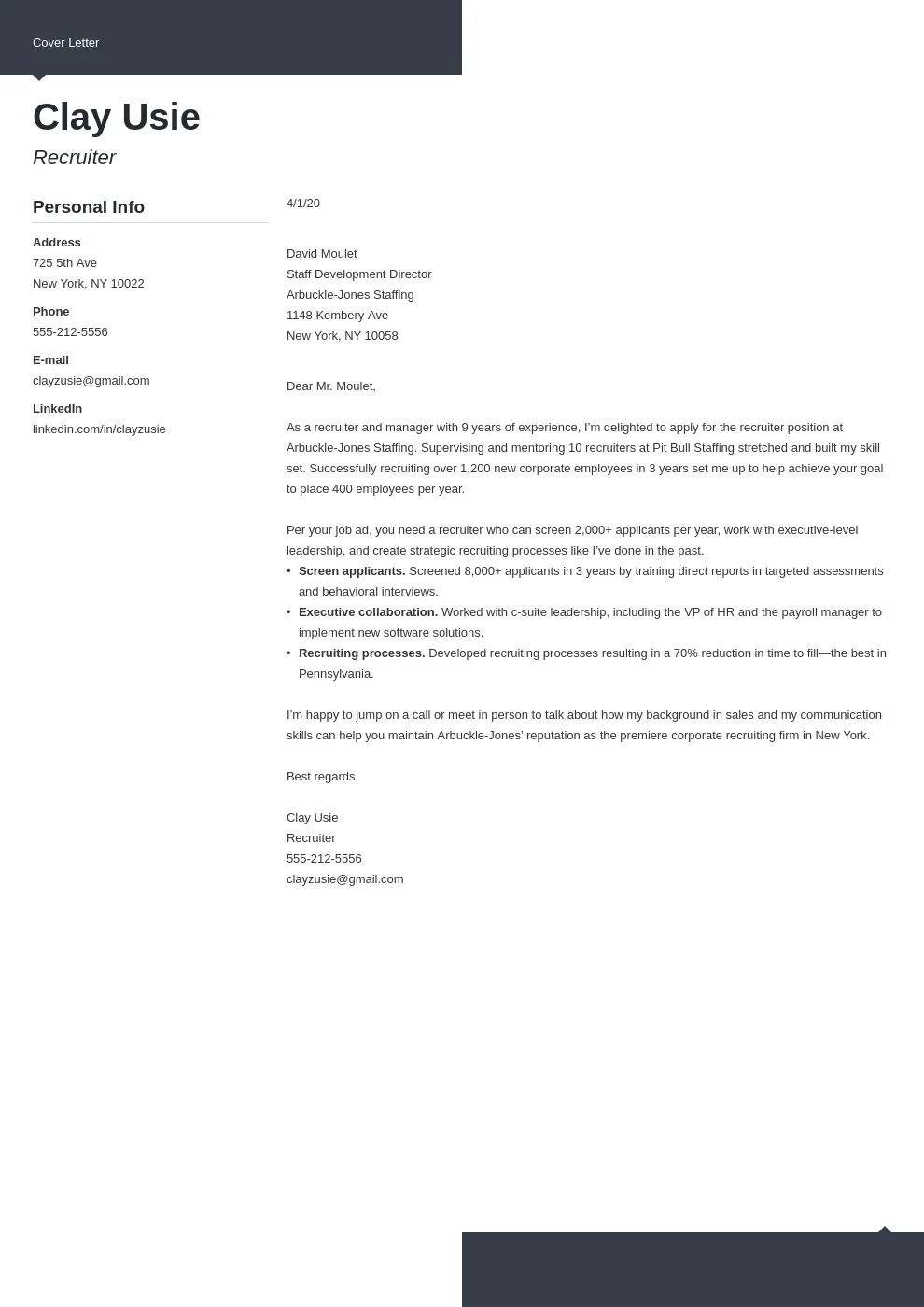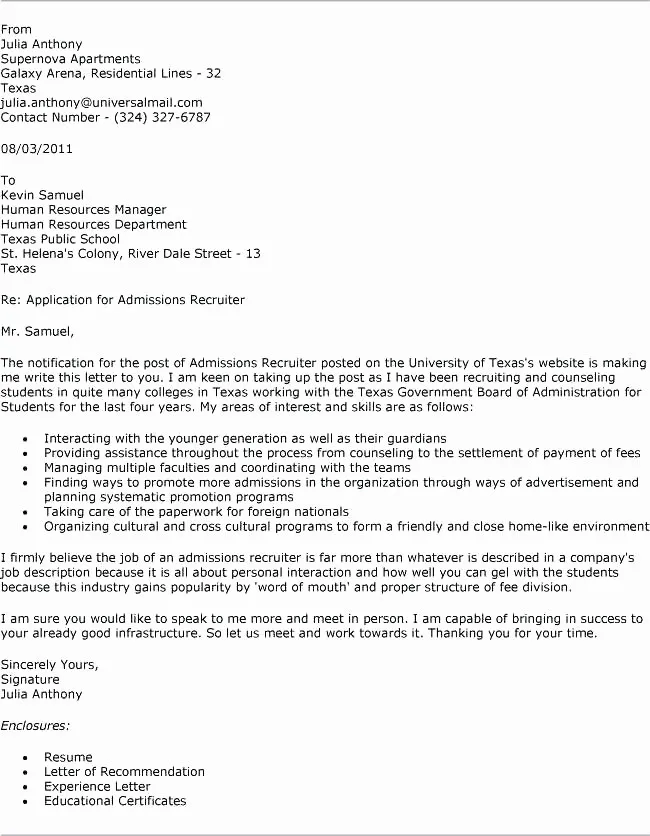Cover Letter Tips for Recruiters
Navigating the job market can be challenging, and a well-crafted cover letter is your secret weapon to stand out from the competition. When you’re applying through a recruiting agency, the stakes are even higher because you’re competing against other qualified candidates. This guide provides seven essential tips to help you write cover letters that grab the attention of recruiters and increase your chances of landing an interview. Whether you are a seasoned professional or a recent graduate, mastering these tips will significantly boost your application success. Understanding the nuances of cover letter writing, especially when targeting recruiters, can be the difference between your resume getting noticed and being overlooked. Let’s dive into these crucial strategies to elevate your cover letter game and secure your dream job.
Understand the Purpose of a Cover Letter
A cover letter isn’t just a formality; it’s your first opportunity to make a strong impression. Its primary purpose is to introduce yourself, highlight your key skills and experiences, and express your enthusiasm for the specific role or company. A cover letter for a recruiting agency allows you to demonstrate why you’re the best fit for the types of positions they handle. It’s a chance to go beyond your resume, providing context and personality. The goal is to convince the recruiter that you are not just qualified but also genuinely interested and aligned with their client’s needs. By understanding this, you can shape your cover letter to be a compelling introduction that grabs the recruiter’s attention and encourages them to learn more about you.
Highlight Relevant Skills and Experience

Recruiters are looking for candidates who can quickly and effectively meet the needs of their clients. Your cover letter must clearly demonstrate how your skills and experience align with the job requirements. Don’t just list your responsibilities; quantify your achievements whenever possible. For example, instead of saying, ‘Managed social media,’ you could say, ‘Increased social media engagement by 30% in six months.’ Tailor the skills you highlight to match the specific job description, emphasizing those most relevant to the role. Using keywords from the job posting will also help your application get noticed by applicant tracking systems (ATS). Show, don’t just tell, by providing concrete examples of how you’ve successfully applied your skills in past roles.
Tailor Your Cover Letter
Generic cover letters are a major turn-off for recruiters. Always customize your letter for each position you apply for and for the specific agency you’re targeting. This means researching the company, the role, and even the recruiter you’re addressing. Personalize your introduction to show you understand the agency’s focus and the types of clients they serve. Mention specific projects, skills, or experiences that match the job requirements. Tailoring your cover letter demonstrates your genuine interest and attention to detail. It shows that you’ve taken the time to understand the opportunity and are not just sending out a mass application. This small effort can significantly increase your chances of making a strong first impression.
Keep it Concise and Focused
Recruiters are busy professionals who review countless applications. Keep your cover letter brief, focused, and easy to read. Aim for one page, typically three to five paragraphs. Each paragraph should have a clear purpose and convey essential information concisely. Avoid unnecessary jargon or overly complex language. Use bullet points to highlight key skills or achievements. Organize your thoughts logically, ensuring that each sentence contributes to the overall message. By being concise, you respect the recruiter’s time and make it easier for them to quickly understand your qualifications and value proposition. This also helps ensure that your most important points are not lost in a sea of text.
Use Action Verbs

Action verbs make your cover letter more dynamic and compelling. They show what you accomplished, not just what you did. Start your sentences with strong verbs like ‘managed,’ ’led,’ ‘developed,’ ‘achieved,’ ‘implemented,’ and ‘improved.’ These verbs paint a picture of your capabilities and accomplishments. For example, instead of ‘Responsible for managing projects,’ use ‘Managed multiple projects simultaneously, delivering them on time and under budget.’ Action verbs create a sense of energy and purpose, making your cover letter more engaging and memorable. They also help recruiters quickly assess your abilities and how you can contribute to their client’s needs. Using a variety of action verbs can also demonstrate your communication skills.
Proofread Carefully
Typos, grammatical errors, and formatting issues can immediately undermine your credibility. Before submitting your cover letter, carefully proofread it multiple times. Use spell check and grammar check tools, but don’t rely on them entirely. Read your cover letter aloud to catch any awkward phrasing or mistakes. It’s also helpful to have a friend or colleague review it for you. A well-written, error-free cover letter shows attention to detail and professionalism. It conveys that you care about presenting yourself in the best possible light. Proofreading is a crucial step, as even minor errors can lead recruiters to question your overall attention to detail and suitability for a role.
Include a Strong Call to Action
End your cover letter with a clear call to action, encouraging the recruiter to take the next step. This could be as simple as stating your availability for an interview or expressing your interest in discussing the opportunity further. For instance, you might say, ‘I am eager to learn more about this opportunity and discuss how my skills can benefit your client. I am available for an interview at your earliest convenience.’ A strong call to action leaves the recruiter with a clear direction on how to proceed. It shows your enthusiasm and initiative, making it more likely that the recruiter will reach out to you. This final touch is crucial for converting interest into an interview opportunity.
